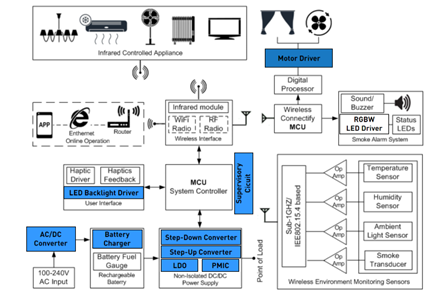Advantages
Due to their efficiency, robustness, and affordability, AC motors are a mainstay in the field of electrical machinery. These and other benefits make AC motors highly preferred in a variety of applications, especially in industrial settings.
Durability, and Cost-Effectiveness
Under normal working conditions, the strong construction of AC motors guarantees their extended service life and adds to their remarkable endurance. Moreover, AC motors' extensive use and large manufacturing scale add to their affordability, giving users a strong return on their investment.
Suitability for a Range of Industrial Applications
A wide range of industrial applications demonstrate the adaptability of AC motors. AC motors may perform a wide range of jobs in a variety of industries, from powering conveyor belts in manufacturing facilities to driving pumps and fans in HVAC systems. Their capacity to function in challenging conditions, thanks to specific features that provide protection against dust, dampness, and explosive atmospheres which further increases their adaptability.
Controllable Starting Current Levels and Acceleration
The ability to regulate an AC motor's starting current and acceleration is one of its main benefits. High starting currents in industrial applications can be problematic because they can cause voltage dips and damage to other equipment. However, soft starters and variable-frequency drives (VFDs) efficiently control the starting current of AC motors, reducing electrical stresses and extending the motor's life.
VFD Add-Ons that Allow Speed and Torque Control
Integrating VFDs with Ac motors revolutionizes their functionality by providing precise control over torque and speed. This flexibility is essential for processes requiring variable-speed operations, including those found in the material handling and processing sectors, as it enables enhanced product quality, energy savings, and process optimization.
Supports Multi-Phase Configurations
Industrial settings typically run AC motors on a three-phase, multi-phase power supply due to their fundamental nature. For industrial applications, AC motors are more powerful and dependable than their single-phase counterparts due to the increased efficiency and torque stability that multi-phase power provides.
Challenges and Operational Considerations
Even though AC motors have many benefits, there are certain drawbacks and operational issues. Understanding these factors is essential for choosing, utilizing, and maintaining AC motors in a variety of applications.
Technical Challenges and Operational Limitations
Technical issues with AC motors, especially induction models, include inherent slip between the magnetic fields of the rotor and stator, as well as issues with efficiency when operating at partial load. Even though this slip is required to provide torque, it may lead to subpar energy use. The need for a starting mechanism to achieve synchronization speed further complicates the use of synchronous motors. Problems with power quality, such as harmonics, power supply imbalances, and voltage sags, can potentially impair the performance of AC motors.
Maintenance, Troubleshooting, and Lifespan Considerations
In order to guarantee the longevity and dependability of AC motors, routine maintenance is essential. This entails routine wear and tear examinations, bearing lubrication, and alignment and balance checks. Gaining a thorough understanding of the working principles of AC motors is often necessary for troubleshooting them in order to identify problems such as overheating, excessive vibration, or electrical defects. Even though AC motors are often robust, certain operating situations, including constant high loads, can have a substantial impact on how long they last. Inadequate management of these conditions can lead to premature wear and failure.
Overheating Problems with Variable Speed Drives
By providing exact control over the speed and torque of AC motors, variable-speed drives (VFDs) improve operational flexibility and efficiency. However, VFDs can lead to overheating problems, especially when motors operate at low speeds for extended periods. Normally designed to cool the motor at its rated speed, the motor's fan may not provide sufficient cooling at low speeds. To stop overheating and ensure dependable motor running, it may be necessary to use additional cooling techniques, such as forced air cooling systems or external fans.




直接登录
创建新帐号